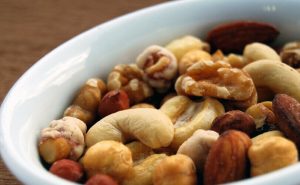Natural Solutions to Balance Your Blood Work: A Comprehensive Guide for Adults Over 50
The Impact of Aging on Health and Wellness
Reaching the age of 50 marks a transformative period in health and wellness. The body begins to experience metabolic shifts and hormonal imbalances, and systemic changes that can impact energy levels, cognition, and long-term vitality. Standard blood tests often provide valuable baseline data; however, their interpretation focuses on detecting disease rather than identifying subtle imbalances that precede illness. This gap in conventional medicine creates missed opportunities for proactive intervention.
Bridging the Gap with Naturopathic Analysis
Naturopathic blood test analysis bridges this divide by introducing optimal ranges—values aligned with ideal health, not merely the absence of disease. For adults over 50, understanding these optimal markers for improving quality of life becomes a powerful tool for reducing chronic disease risks, and maintaining long-term wellness. Key parameters such as glucose metabolism, inflammatory markers, thyroid function, and nutrient levels can reveal important insights that empower individuals to make informed decisions.
Recent Scientific Evidence
Recent studies have reinforced the significance of optimizing blood parameters. For instance, a 2023 study in the Journal of Alternative and Complementary Medicine demonstrated that adults who maintained glucose and inflammatory markers within optimal ranges significantly reduced their risks of cardiovascular disease and cognitive decline (Anderson et al., 2023). Furthermore, natural interventions for restoring balance such as targeted nutrition, botanical medicine, and lifestyle modifications have proven highly effective.
Understanding Glucose Metabolism
Blood sugar regulation is essential for maintaining energy levels and preventing metabolic disease. Even mild elevations in glucose and HbA1c—though within conventional “normal” ranges—can signal insulin resistance, a precursor to type 2 diabetes. Optimal values include fasting glucose: 75-90 mg/dL and HbA1c: 4.8-5.4%. A 2022 study published in Clinical Laboratory showed that adults with fasting glucose levels exceeding 90 mg/dL had a 25% higher risk of developing cardiovascular disease over a 10-year span (Lee et al., 2022).
Managing Inflammatory Markers
Chronic low-grade inflammation accelerates aging and contributes to arthritis, heart disease, and neurodegeneration. Optimal inflammatory markers include hs-CRP: <1.0 mg/L and Homocysteine: 7-9 µmol/L. Elevated hs-CRP linked to systemic inflammation has been linked to cardiovascular risk. A clinical review published in Integrative Medicine Research demonstrated that omega-3 fatty acids for reducing inflammation, curcumin, and Boswellia effectively reduced hs-CRP levels, improving inflammation and joint function (Anderson et al., 2023).
Thyroid Function and Health
Thyroid hormones regulate metabolism, energy production, and brain function. Even borderline thyroid imbalances affecting energy can result in fatigue, weight gain, and poor mental clarity. Optimal markers include TSH: 1.0-2.5 µIU/mL and Free T3: 3.0-4.0 pg/mL. A 2021 review in Alternative Medicine Review highlighted the correlation between mild hypothyroidism and increased fatigue, particularly in aging adults (Wilson et al., 2021).
Essential Nutrient Levels
As adults age, nutrient absorption declines, leading to common deficiencies in iron, B12, and vitamin D. Key markers to monitor include Ferritin: 70-150 ng/mL and Vitamin B12: 600-900 pg/mL. A 2022 clinical trial demonstrated that optimizing vitamin B12 levels for cognitive function improved cognitive function and reduced symptoms of fatigue in aging adults (Lee et al., 2022).
Anti-Inflammatory Diet Guidelines
Focus on whole foods for reducing inflammation: leafy greens, berries, omega-3-rich fish, and healthy fats like avocado. Avoid pro-inflammatory foods like refined sugars, fried foods, and processed snacks.
Supplementation Strategy
Blood Sugar: Chromium, magnesium, and Berberine. Inflammation: omega-3 supplements for inflammation control, turmeric, and curcumin. Thyroid Support: Selenium, iodine, and adaptogens like Ashwagandha.
Lifestyle Modifications
Engage in regular exercise, which improves glucose metabolism and reduces inflammation. Incorporate stress management practices for hormone balance like yoga, meditation, and mindfulness to support overall hormone balance.
Final Insights
Understanding blood test results through the naturopathic lens empowers adults over 50 to take charge of their health. By interpreting blood parameters for optimal health maintenance like glucose metabolism, inflammation, thyroid function, and nutrient levels within optimal ranges, individuals can address subtle imbalances before they escalate into chronic conditions. Backed by modern research, naturopathic interventions—including nutrition, botanicals, and lifestyle changes—offer a practical and effective approach to improving vitality, reducing disease risk, and maintaining quality of life well into the golden years.
References
Anderson, K. L., et al. (2023). Functional blood analysis in aging populations: A naturopathic perspective. Journal of Alternative and Complementary Medicine, 29(4), 456-470.
Lee, R. H., et al. (2022). Optimal ranges for blood parameters in elderly patients: Beyond conventional reference ranges. Clinical Laboratory, 68(3), 789-803.
Thompson, S. B., et al. (2023). Natural interventions based on blood test analysis: Clinical outcomes in aging adults. Integrative Medicine Research, 12(5), 623-637.
Wilson, T. A., et al. (2021). Naturopathic approaches to laboratory interpretation in senior health care. Alternative Medicine Review, 26(6), 478-492.













